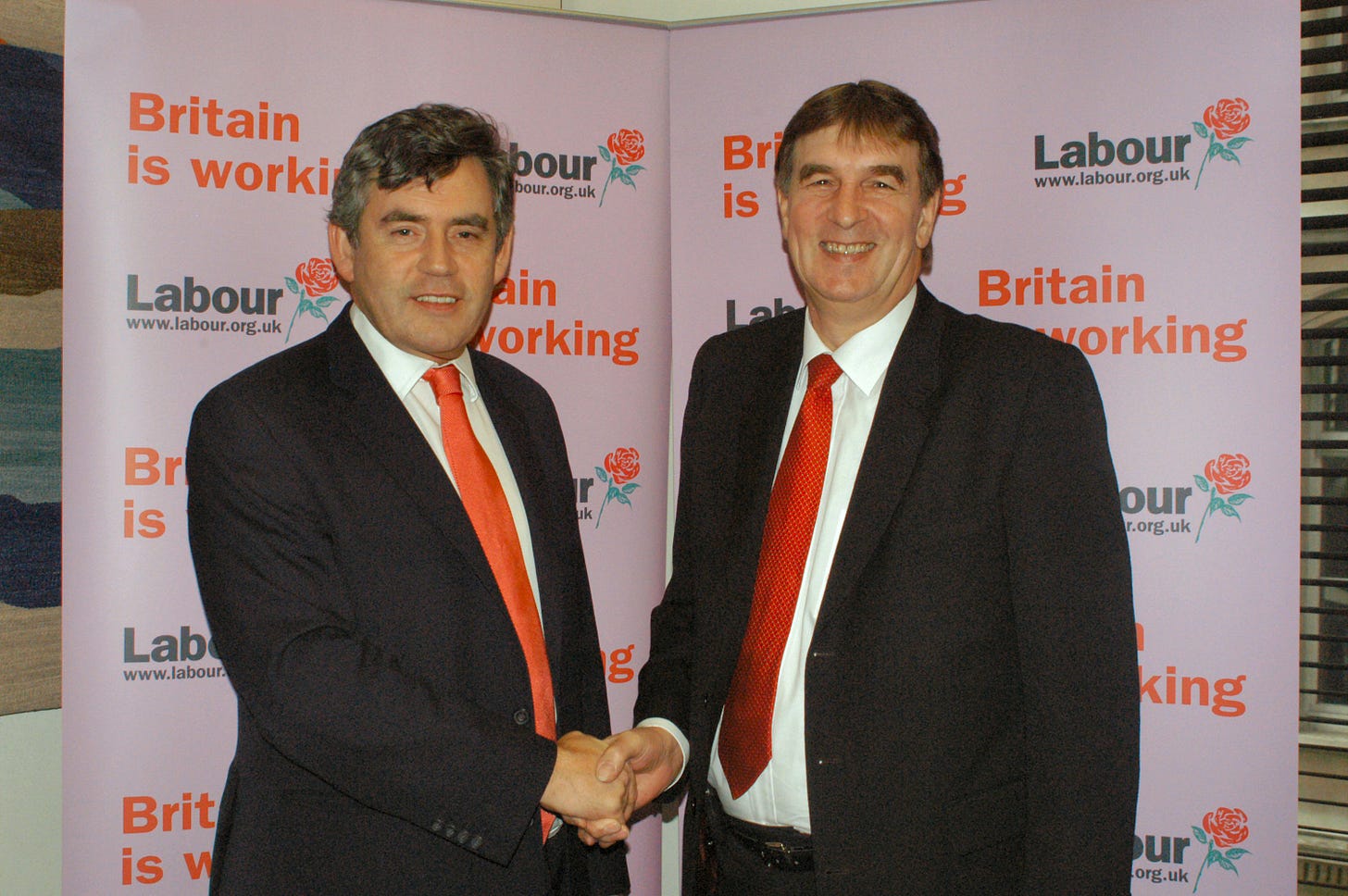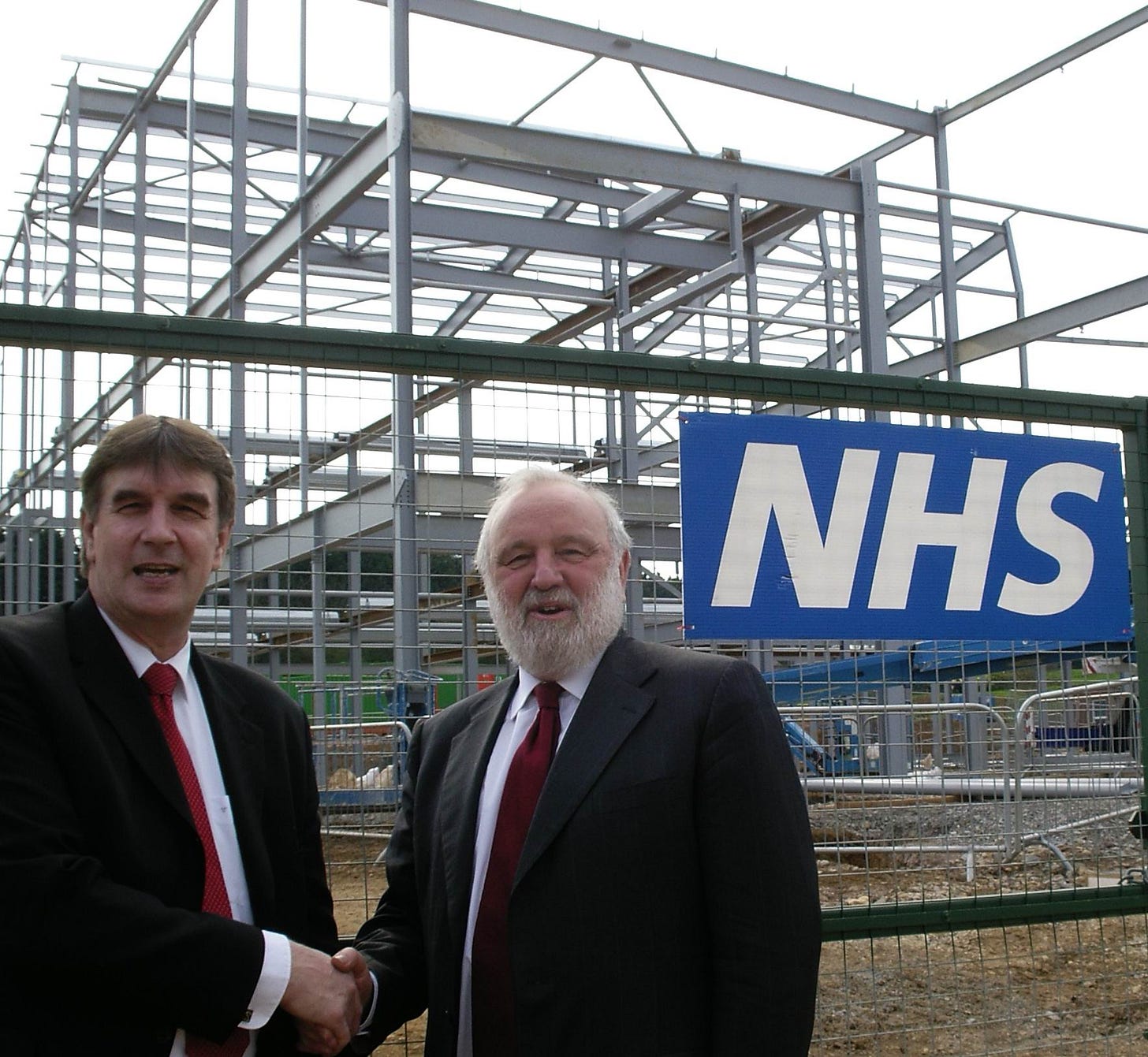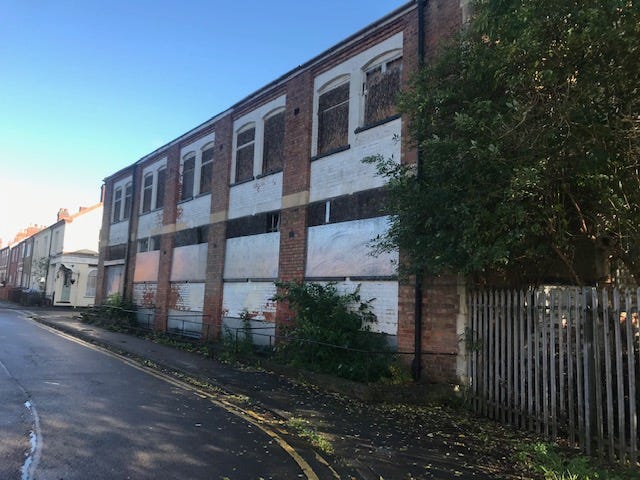'I put that red rosette on and I still think it’s got an engine in it'
We speak to former Kettering MP Phil Sawford about his views on today’s Westminster, his time as an MP and why he’s not ready to give up the political fight just yet
We publish news about Northamptonshire every day of the week. Sign up for your free news here
By Sarah Ward
Like many, Phil Sawford is concerned about the way in which Westminster is currently operating. Perhaps as a former Labour MP, it would be daft to suppose he’d think any other way, but as someone who has worked in the halls of power and played the political games, he knows more than most how Westminster works. And he’s not happy.
“For eight years I had the title honourable and that meant something. Since I left Westminster (in 2005) I think that has been devalued. I don’t think that most people do see members of parliament as honourable anymore and I think that’s a very sad reflection on politics as a whole.
A lot of things that happen at Westminster are in that bubble and are all part of a political game really, but this latest situation has gone way beyond that bubble, the normal slapstick politics. The yah boo of politics that people get away with. This has hit people hard and they know that they couldn’t visit sick relatives in hospital, they missed funerals, they missed birthdays and other family occasions, many lost a relative, a friend, a neighbour and they are angry. I think this one has given a lot more people something to think about the fact that the people who made the laws weren’t observing them the way the rest of them were.
It’s not as much what they did but the way they tried to lie their way out of it, and dodge the issue, that evasiveness has angered people as well.
The vast majority of people made big sacrifices, not least key workers. So many people gave up so much and then they read the paper and ‘how many parties did they have?’ Just trying to push it aside like it wasn't a big deal. But I’m afraid for many people it is a big deal.
It goes back to the old propaganda story. If you tell the people the same story often enough eventually they will begin to believe it. But I’m not sure that people are being taken in on this occasion.”
And he thinks the recent scandals are taking their toll on the values the country is built upon.
“I think democracy has suffered over recent years. I think one way or another MPs, politicians, have been their worst enemy, almost. But I think the coming of social media has opened up a whole new element. News can get around, even fake news. You used to rely on newspaper and news media.
But now there’s a whole separate communication system out there and people can express themselves in a way that wasn’t available when I was in parliament. But generally if we denigrate politicians enough, if we highlight their deficiencies enough, then who wins? I think democracy loses.
In the end you’ve got to elect people that you think are trustworthy, that will stand up for their community and will abide by parliamentary standards and if they don’t they should be honourable enough to stand down. Years ago politicians resigned for much less. You’ve got a prime minister standing at the dispatch box trying to mislead the nation and seemingly at the moment he’s getting away with it. Years ago it wouldn’t have happened.”
Rather than putting the decline in standards down to the current batch of elected MPs he says the rot started in his day - with the expenses scandal.
“It was the thin end of a very long wedge,” he says. Unlike some of his parliamentary colleagues, he was not found to have acted in any way untoward by claiming expenses that he should not have.
As to what can be done about the current standards he does not think legislation is the answer.
“I think parliament could legislate, but the assumption was that members of parliament were honourable people. You didn't need a rule book. You didn't need legislation. I think that’s been lost along the way. Whether you could legislate to make them more honourable, I don't think you could.
It’s fragile. It’s much easier to break that trust with the electorate than it ever is to repair it. And it is going to take a huge amount of work and a very long time to restore the level of respect. I think to rebuild that is going to be a very long road.”
From Loddington to Westminster
Born in Loddington, near Kettering and educated at Kettering Grammar School, Phil finished school at 16 and became an apprentice carpenter. After landing a job at Corby’s steelworks, this career came to an abrupt end in 1979 when like thousands of others he was made redundant following the ending of steel making in the town.
He then had the opportunity to study for a sociology degree at Ruskin College in Oxford following in the footsteps of trade union giants Dennis Skinner and John Prescott and then worked in HR for many years.
Having entered local politics in the 1970s he first stood for election in Wellingborough in 1994 and then was elected as MP for Kettering in the Labour landslide of 1997, elected with the the smallest majority in England - just 184 votes. He won the next election but lost to current MP Conservative Philip Hollobone in 2005.
Among the many causes he championed, the father of two says the town’s NHS hospital was a huge priority for him.
“I took a conscious decision when I was elected that one of the best things I could do for the area would be to get resources into that hospital. And we got a new cat scanner and then we got an MRI scanner - they’d never had one. Then we got the day care centre down the bottom and another operating theatre.
I just kept knocking on Dobson’s door; “Hello Frank, we need one of these mate”. I worked hard to get resources into that hospital.
I used to go there at 8am Friday morning, at least once a month - I was in there all the time. “What do you want - how much is it?” I saw that as a big part of the job. I spent hours round every department from the path lab to the dialysis unit to the maternity unit. I know that hospital like the back of my hand and I was up there all the time because I thought it was probably the best thing I could do.”
16 years on, the hospital is in a critical state. The accident and emergency is well over capacity, which has a knock on effect on other services. The government has pledged £46m for a new urgent care centre and also more than £350m towards an onsite rebuild, but there are current hold ups as Westminster and the hospital bosses appear to be at odds about moving forward. The latest intervention saw MP Philip Hollobone tell health minister Edward Argar at the start of this month that Kettering General bosses were ‘straining at the leash’ to get started but had not had feedback on its strategic outline case for its redevelopment. Agar said his department was awaiting a business plan from the hospital.
Back to where it began
The former MP is now chairman of Desborough Town Council, 44 years after he was first elected to the authority. (He stood down from the town council and also the borough council of which he was then leader in 1998 when he was elected as the MP). He says he came out of retirement because he became fed up with what he was listening to in his own home town. Local politics had become toxic - in 2016 the Conservative-led town council resigned en masse after a public backlash to a 400 council tax precept rise and then two years later temperatures reached boiling point again over the issue of whether the town council would help a community group to buy up the under-threat library.
He was elected to the authority in the 2018 elections and took over as chair last May. The local fallouts have now died down.
“They were taking lumps out of each other in no time at all. It was worse than any politics I’ve ever seen,” he says.
“Labour are in control again now and I think we have a big job to do. We’ve got to win back the respect of local people. We’ve got to earn their trust and we’ve got to rebuild.”
The major thing on the agenda currently is the long standing issue over what will happen to the old Victorian Lawrence’s factory. The site is earmarked for housing, but there are rumours a supermarket is interested in the site (again). A sticking point has always been Historic England’s view that the derelict factory is of significance and should stay and so he is now getting involved.
“It’s standing in the way of progress at the moment.
I’ve asked the clerk to write to them and ask their current position on it; how they arrived at that position and what key factors were taken into account; what consultation took place in the community; what status their position has on planning terms (whether it’s a major stumbling block) and I want to meet them. I’ve also asked if there is a process to challenge any decision they’ve made, or appeal.”
So he has returned to local politics, doing the thing that has always driven him, making a contribution to society. He’s not sure whether he will stand again at a local election (next time he’ll be 75) but he still has much fight left in him.
“I will fight my corner and I will pursue the things I believe in and I’m as dedicated now as I ever was. I put that red rosette on and I still think it’s got an engine in it.”
After our interview Phil Sawford sent us an email to say that his favourite hobby has always been music and he spent lockdown entertaining in his band Backyard busker.
You can watch some clips here.







It was always a joy to campaign with Phil in the Kettering area for his knowledge of the area and the many personal contacts he had built up.
Great person , honest and reliable and has the best interests of his community at heart.